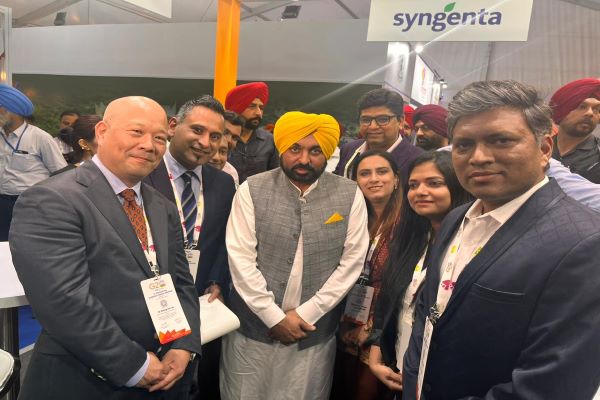Through 2023, Syngenta will develop more prototypes and continue refining the sensor’s artificial intelligence and machine learning algorithms.

Syngenta, in partnership with the Indian Institute of Technology, Ropar (IIT Ropar), is displaying its biodiversity sensor project at the G20 Education Working Group meeting in Amritsar, Punjab yesterday. It is also showcasing the deployment of drone for use in spraying of crop protection solutions and how it is empowering farmers by helping them save money, labour cost and time to enhance their income eventually.
Chief Minister of Punjab Bhagwant Singh Mann witnessed Syngenta’s farmer centric tech solutions and complimented the Biodiversity Sensor initiative which is key to understand and monitor biodiversity in Punjab farms. Biodiversity Sensor Project is Syngenta, IIT Ropar and Fraunhofer joint initiative.
The low-cost, solar-powered Biodiversity Sensor features continuous biodiversity monitoring that automatically, autonomously, and reliably identifies most insect species. This data will give researchers, policy makers and farmers the information they need to help biodiversity thrive.
The first Biodiversity Sensor prototype was launched last year. Through 2023, Syngenta will develop more prototypes and continue refining the sensor’s artificial intelligence and machine learning algorithms.
“Our tech-led collaborations with experts and creation of a farmer-centric ecosystem are key to address challenges faced by farmers to feed a growing population,” said Susheel Kumar, MD & Country Head, Syngenta India.
He added that, “One of our primary goals is to identify, develop and scale a series of innovative, breakthrough transformations that will enable farmers to increase their yields sustainably. Individuals and institutions must work collectively to utilize technology and conserve our rich biodiversity.”
Over time, biodiversity sensors around the world will gather a continuous stream of open and usable data. “By collecting and analysing this information across geographies, we can create a common language for fact-based discussions among various stakeholders and enable organizations to develop game-changing innovations,” said Pushpendra P Singh, Associate Professor, Department of Physics, IIT Ropar.
Syngenta also highlighted its drone program. Syngenta was the first private company to get approval from Central Insecticides Board, Government of India to use drones for spraying of its product Amistar on paddy to protect the crops against fungal infections, Blast & Sheath Blight. “Encouraged by this along with the policy push by Government of India and the state government, Syngenta organised a unique, first-of-its- kind Drone Yatra, under which a drone awareness van moved across 17,000 km in 13 states reaching out to 15,000 farmers and giving them demos on drone spraying,” informed Kumar.
Subscribe to our newsletter & stay updated.